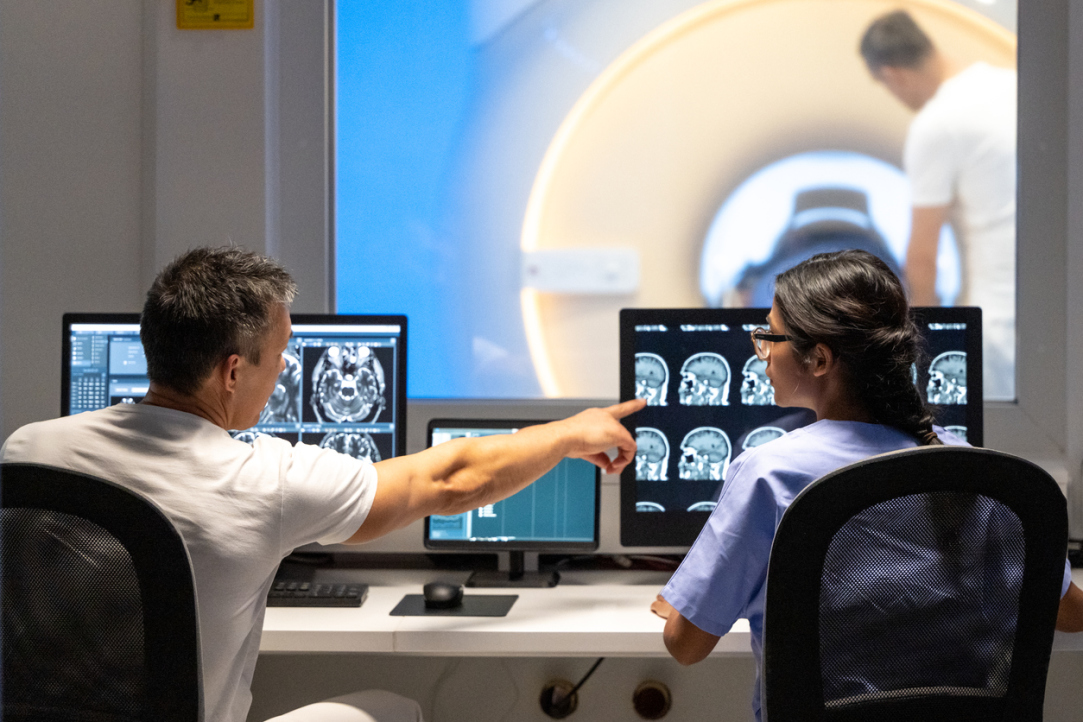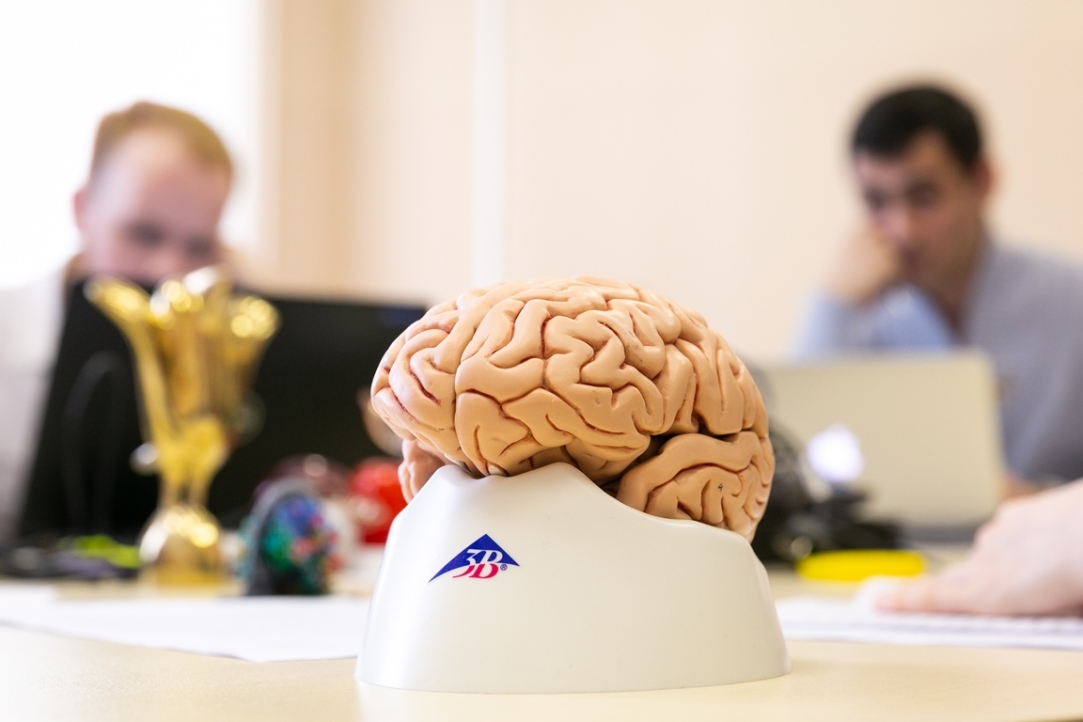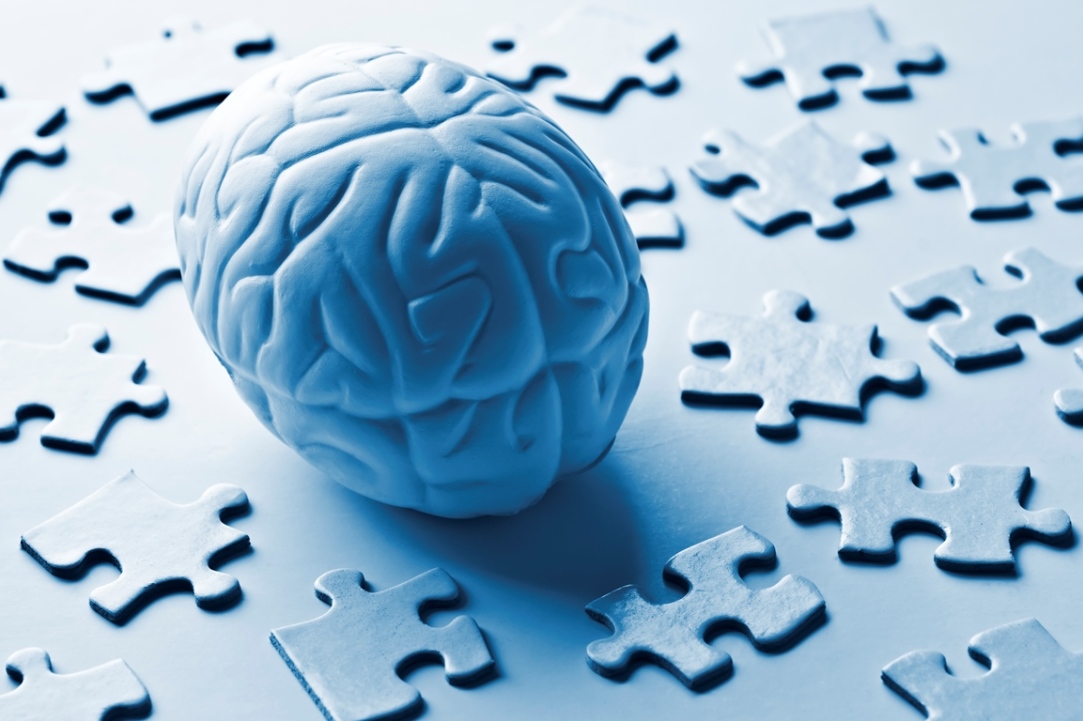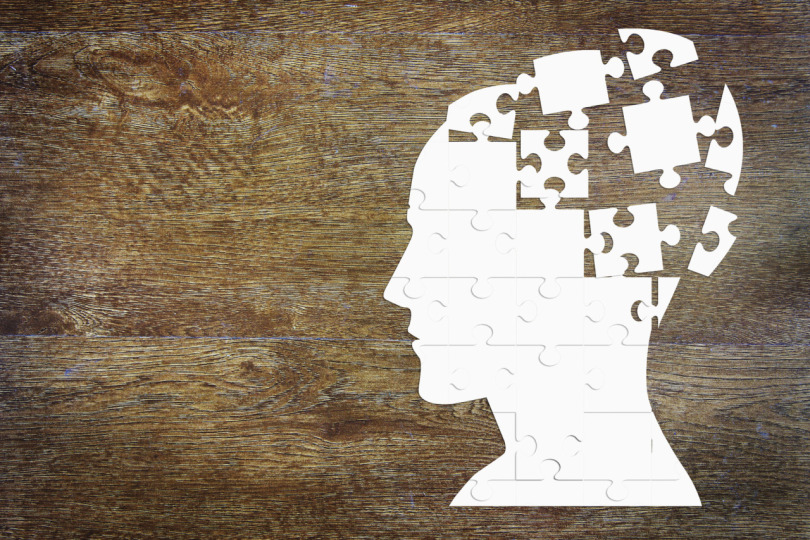
Software for Rapid Detection of Dyslexia Developed in Russia
HSE scientists have developed a software tool for assessing the presence and degree of dyslexia in school students based on their gender, age, school grade, and eye-tracking data. The application is expected to be introduced into clinical practice in 2024. The underlying studies were conducted by specialists in machine learning and neurolinguistics at the HSE AI Research Centre.

Researchers Have Developed a Russian-Language Method for the Preoperative Mapping of Language Areas
Neurolinguists from HSE University, in collaboration with radiologists from the Pirogov National Medical and Surgical Centre, developed a Russian-language protocol for functional magnetic resonance imaging (fMRI) that makes it possible to map individual language areas before neurosurgical operations. The study was published in Frontiers in Human Neuroscience.

HSE University Researchers Develop First Standardized Russian-Language Test for Aphasia-related Disorders
Researchers from the HSE University Centre for Language and Brain have created and standardized a new test battery for diagnosing language disorders in people with brain damage. The test is the first standardized assessment tool in Russia in the field. The paper entitled ‘The Russian Aphasia Test: The first comprehensive, quantitative, standardized, and computerized aphasia language battery in Russian’ has just beenpublished in the PLOS ONE journal.

Centre for Language and Brain Opens at HSE
The Centre stems from the International Neurolinguistics Laboratory and brings together researchers in clinical linguistics, special needs education, psycholinguistics, bilingualism, child speech, and gerontolinguistics. The Centre’s academic supervisor is Roelien Bastiaanse, Professor from the University of Groningen (the Netherlands), a researcher into clinical linguistics and founder of EMCL and IDEALAB, unique international educational programmes.
Center for Language and Brain Wins 3-Year Grant to Study Prevention, Diagnostics and Therapy of Language Disorders
The HSE Center for Language and Brain studies a broad range of topics related to the connection between the brain and language. For Svetlana Malyutina, Deputy Head, and Mariya Khudyakova, Junior Research Fellow, particularly interesting areas of focus include the breakdown of language processing after brain damage (e.g., stroke, neurosurgery, epilepsy) and language acquisition in children.
Unique Brain Surgeries and Electricity from Moss: HSE Scholars Present Their Discoveries at ONF Action Forum
At an exhibition held during the Russian Popular Front (ONF) Action Forum in Moscow, December 18-19, HSE neuro-linguists presented a method to preserve human speech after brain surgeries, and urbanists showcased sources of energy made of ceramics and moss.

'Surgery Needs to Preserve Brain Tumour Patients' Speech in Native Language’
As part of the HSE April Conference, Olga Dragoy, Head of HSE Center for Language and Brain (Neurolinguistics Laboratory), presented some of the cutting-edge methods of preventing speech disorders in Russian-speaking patients with brain pathology, including the first Russian-language intraoperative naming test developed by the laboratory. All test materials and instructions are available for free and can be used in clinical practice.
-%D0%BC%D0%BE%D0%B7%D0%B3%20%D0%B8%20%D0%B6%D0%B5%D0%BD%D1%89%D0%B8%D0%BD%D0%B0.jpg)
Fishing Easier Than Swimming
HSE researchers found different patterns of brain activity involved in processing instrumental and non-instrumental verbs.

HSE Researchers Expand on Neuroanatomical Model of Semantic Aphasia
For the last 70 years, it was largely believed that spatial processing disorders, including those seen in language, occurred when the temporal-parietal-occipital (TPO) junction of the brain’s left hemisphere was damaged. But according to researchers from the HSE Neurolinguistics Laboratory, it is the damages to the axonal fibers connected to this area of the brain that are most important.
Neurolinguistics Laboratory Informs Public about Aphasia
Staff members at the HSE Neurolinguistics Laboratory have developed an information booklet for families of people with aphasia - speech disorders caused by brain lesions.


Application deadline: June 23, 2025